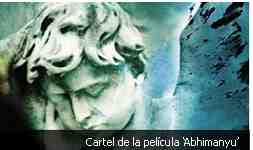A broad majority in the Dutch parliament voted for crucial legislative proposals to safeguard an open and secure internet in The Netherlands. The Netherlands is the first country in Europe to introduce a net neutrality law. In addition, provisions were launched protecting users against disconnection and wiretapping by providers. Digital rights movement Bits of Freedom calls upon other countries to follow the Dutch example.
The net neutrality proposal (Dutch) prohibits internetproviders from interfering with the traffic of their users. Dutch telecom incumbent KPN recently received world-wide media-attention because it planned to charge Internet users for the use of innovative and competitive services such as Internet telephony. The legislative proposal aims to prevent this, while still allowing for measures in case of congestion and for network security, as long as these measures serve the interests of the internet user. A small technical error in the amendment was introduced last minute and will in all likelihood be corrected next week.
The anti-wiretapping proposal (Dutch) restricts internetproviders from using invasive wiretapping technologies, such as deep packet inspection (DPI). They may only do so under limited circumstances, or with explicit consent of the user, which the user may withdraw at any time. The use of DPI recently gained much attention when KPN admitted that it analysed the traffic of its users to gather information on the use of certain apps. The proposal allows for wiretapping with a warrant.
The internet connection proposal (Dutch) ensures that internetproviders can only disconnect their users in a very limited set of circumstances. Internet access is very important for functioning in an information society, and providers currently could on the basis of their terms and conditions disconnect their users for numerous reasons. The proposal aims to restrict this, but allows for the disconnection in the case of fraud or when a user doesn’t pay his bills.
The proposals are introduced by the Dutch parliament in the course of the implementation of the European telecommunications package. The proposals will also have to be adopted by the Dutch Senate (Eerste Kamer) before entering into force. English translations of the amendments will be published on the website of Bits of Freedom in due course. A first translation of the net neutrality provision can be found here, but does not include the technical error (which will soon be corrected).




 ¿Serán sustituidos totalmente por internet y el correo electrónico?
¿Serán sustituidos totalmente por internet y el correo electrónico?
 Ningún folklore más interesante, más revelador del verdadero espíritu popular que aquel que pudiéramos llamar folklore culinario. Son las comidas de cada país como la ficha antropológica integral, colectiva, y no sólo del cuerpo, sino también del alma.
Ningún folklore más interesante, más revelador del verdadero espíritu popular que aquel que pudiéramos llamar folklore culinario. Son las comidas de cada país como la ficha antropológica integral, colectiva, y no sólo del cuerpo, sino también del alma. Los vendedores en semáforos de cualquier ciudad mexicana son unos verdaderos emprendeteurs: emplean diariamente -como cualquier inversionista digamos-, su personal fuerza de trabajo, van por su cuenta y riesgo, sin contrato, en jornadas de 8 horas o más al día, enfrentan inclemencias del clima y contaminación en pos de su objetivo: vender. A pesar aún de mal comer, mal dormir, tener apenas alguna escolaridad, o ser adicto al alcohol o cemento. Con este tezón, los encontramos desde los 3 años hasta ya ancianos. Es cuestión de carácter, de actitud. No son quejumbrosos, ni siquiera tienen derechos laborales. Finalmente están contentos: en su mayoría trabajan para millonarias trasnacionales.
Los vendedores en semáforos de cualquier ciudad mexicana son unos verdaderos emprendeteurs: emplean diariamente -como cualquier inversionista digamos-, su personal fuerza de trabajo, van por su cuenta y riesgo, sin contrato, en jornadas de 8 horas o más al día, enfrentan inclemencias del clima y contaminación en pos de su objetivo: vender. A pesar aún de mal comer, mal dormir, tener apenas alguna escolaridad, o ser adicto al alcohol o cemento. Con este tezón, los encontramos desde los 3 años hasta ya ancianos. Es cuestión de carácter, de actitud. No son quejumbrosos, ni siquiera tienen derechos laborales. Finalmente están contentos: en su mayoría trabajan para millonarias trasnacionales.